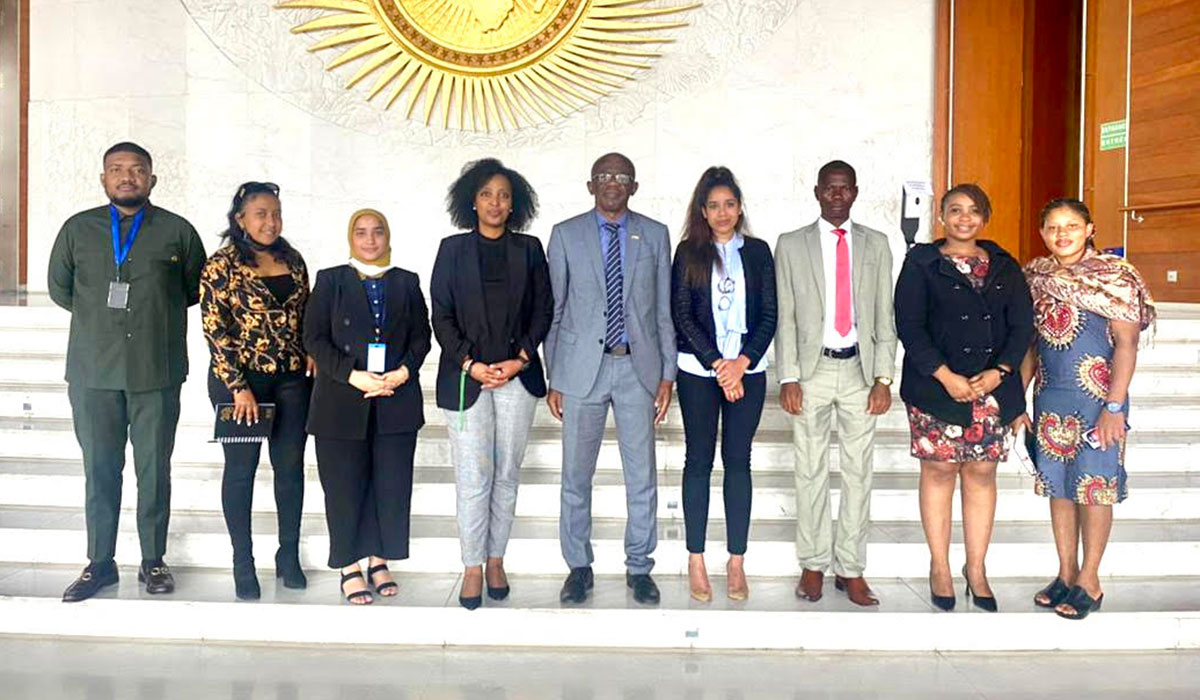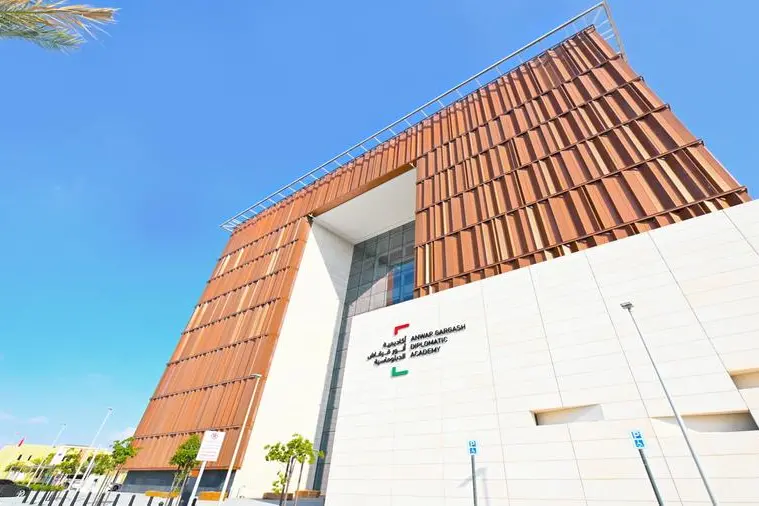From November 2021 to May 2022, the African Union’s African Governance Architecture (AGA) Secretariat in partnership with ACCORD implemented a capacity-building programme for the TOP 5 winners that were shortlisted from 20 innovators from the AGA and Common market for Eastern and Southern Africa (COMESA) challenge, which was launched in 2020. The capacity-building programme included the provision of Project Management Cycle, Monitoring and Evaluation (M&E) and Grant Writing training for the Top 5 Youth Innovators in preparation for grant support from the Training for Peace (TfP) programme through the Institute for Security Studies (ISS). The Top 5 Innovators also received coaching and mentoring in preparation of Africa Talks – TED Talk style presentations where they presented their innovative concepts at the Expo 2020 in Dubai. Following the Expo, each of the Top 5 Innovators received grants for their innovations and began working on their projects. In order to assess the progress on the implementation, the AU AGA with support from ACCORD and ISS, conducted M&E visits to their home countries and innovation hubs.
The 1st M&E visit took place in Kampala, Uganda, with 3rd placed Innovator, Lydia Matte from 21 to 22 March 2022.Lydia’s project is called SEMA, which is a platform where citizens can share their latest experience with a public institution anonymously, easily and free of charge. SEMA’s feedback tools include an IoT feedback device, a USSD code, a toll-free line, telephone- and WhatsApp surveys and in-person surveys. As citizens are the users of the public institutions, SEMA translates their needs into recommendations for improved service delivery in Uganda. SEMA has reported that many public offices have made improvements based on citizen feedback, including: eliminating absenteeism and bureaucratic processes, improving waiting areas, improving navigation in big offices, conducting customer care trainings, reducing corruption (disciplinary measures were filed against corrupt officers), reshuffling staff and purchasing facilities (such as CCTV or printers to make services more client-friendly). SEMA’s mission is to create a worldwide revolution in public service so that citizens’ feedback becomes central to how governments improve their service delivery.
The 2nd M&E visit took place in Cotonou, Benin with 4th place Innovator, Romaric Mouftaou from 13 to 14 April 2022. Romaric leads the (Nouveau Type de Citoyens) NTC Movement in Benin. The NTC movement is the first initiative in Benin, which offers young people sustained training in civic leadership, and soft skills development, coupled with encouragement of citizens to exercise their civic responsibility, while belonging to a support network of citizens throughout the country. NTC currently has a network of 70 coordinators overseeing the activities of the Movement in the 12 departments of Benin, 154 coordinators overseeing the actions of the Movement in the 77 communes of Benin, and 1092 coordinators overseeing the actions of the Movement at the level of the 546 boroughs throughout the country. The impact created by the network of coordinators are visible through an increase in activities such as clean-up campaigns, brainstorming meetings between NTC coordinators and elected officials, and an increase in letter writing campaigns to government officials to better service delivery.
The 3rd M&E took place from 27 to 28 April 2022 at the African Union Commission Headquarters in Addis Ababa and evaluated the 1st place Innovator, Benazir Hilali and the 5th place Innovator, Justin Ngbapai’s projects. The 1st and 5th place Innovators are from Comoros and South Sudan respectively.
Benazir’s project is on the African Risk Compass (ARC), which is an inclusive evidence-based platform on public risk perceptions. The ARC gathers anonymised and non-identifiable data through a mobile- and user-friendly digital survey and on-the-ground consultations on the perception of actor groups regarding socio-political risks. The ARC uses a hybrid data gathering approach that assesses crisis management processes across the African continent. This is the first project of its kind to capture data from all 55 AU member states. The ARC gathers primary data to inform predictive approaches to crisis prevention. The data gathered by the ARC can be leveraged and integrated into existing research, policy, and other national, regional and global projects that seek innovative approaches to crisis prevention. It helps strengthen analyses on governance performance, highlights policy misalignments, assesses local, national and regional trends, and improves the ability of preventative frameworks to anticipate crises, including the African Peer Review Mechanism.
Justin’s project is on prevention of Conflict Related Sexual Violence (CRSV) and Confidence building between civilians and the military in Western Equatoria, South Sudan. The objectives of the project are to enhance the relationship between citizens and South Sudan People’s Defence Forces (SSPDF), Sudan People’s Liberation Movement-in-Opposition (SPAL-IO) and other armed groups post conflict, to empower and create a conducive environment for CRSV victims and survivors, and to provide psychosocial support to both the Citizens and SSPDF and SPL-IO and other armed groups. AJPO creates a platform for communities in Western Equatoria to air grievances exacerbated by conflict and to identify robust approaches to mend the broken social fabric.
The 4th and final M&E visit took place in Cairo, Egypt with 2nd place Innovator, Dina Ibrahim from 12 to 13 May 2022. Dina leads the AkhbarMeter Media Observatory Project, which tracks performance of Egypt’s media outlets to curb the spread of fake news. AkhbarMeter is the first digital online media observatory in Egypt and Africa that ranks digital media channels according to their adherence to ethical and professional standards in media production.
Not only did the M&E visits to the Innovator help the AU AGA Secretariat and the TfP Programme to assess the progress of the Innovators with the implementation of their innovative concepts. The visits were also a platform for the AU AGA Secretariat and the TfP Programme (through ACCORD and ISS) to offer guidance and share suggestions with the Innovators for further enhancement of their projects. Young people in Africa continue to be marginalized in democratic governance and socio-economic development processes at national, regional and continental level. The TfP Programme has been one of the recognized key knowledge and capacity-building partners for youth in governance and peace processes. The TfP Programme at ACCORD is an initiative funded by the Norwegian Ministry of Foreign Affairs.








